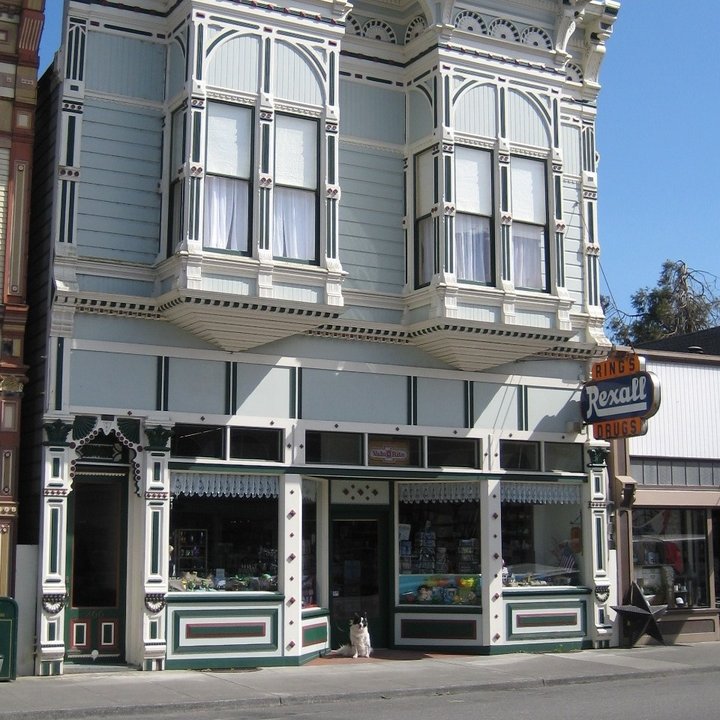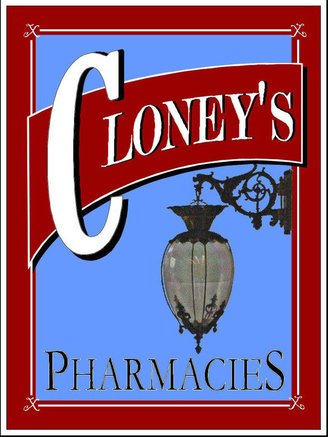
Courtesy of Rings Pharmacy.
Tom Renner has been a pharmacist for 40 years. He is the owner and operator of Rings Pharmacy in Ferndale which celebrated 30 years of operation last Friday. He said his pharmacy has experienced a bit of change since COVID-19 took over, mainly in terms of less people coming into the store to buy non-prescriptions. But back in early March, Renner experienced a surge in customers when COVID-19 grew into the pandemic it is today.
“With [Center for Disease Control] guidance to have a three-month supply, people were taking that to heed and as different news came out with what people should have on hand — like thermometers, acetaminophen, gloves — we saw those sales increase,” Renner told the Outpost.
In terms of shortages for prescriptions and other meds, Renner said they have been able to keep up with the demand.
“COVID-related medication shortages haven’t been a problem,” he said. “There have been some shortages in some drugs, but that is typical supply line issues.”
Pharmacies across the nation faced shortages in some medications such as albuterol inhalers for asthmatics — something the Food and Drug Administration says there’s a shortage of nationwide. An April 16 poll conducted by the National Community Pharmacists Association found, “nearly 90 percent of neighborhood pharmacies have experienced drug shortages since March 1, 2020.”
Renner said he started to run short on inhalers initially but has since been able to stock up. He said the initial surge for prescriptions wasn’t something out of line.
“I don’t want to call it a panic because people wanted to be prepared,” Renner said.
To comply with social distancing measures and to adapt to the new demands, Renner is providing curbside pickup for any customers that may not want to come inside the store. He and his staff are wearing homemade masks with inserted filters and have a number of locally made ones available.
“You can’t overstate just how nice and thoughtful the people are making these masks,” Renner said.
Although things have been mellow for Rings Pharmacy in Ferndale, business was a bit more hectic for John Backus and the crew at Cloney’s Pharmacies. Backus is a pharmacist and has owned the Cloney’s chain since 2010, although the Cloney’s chain itself has been operating in Humboldt since 1902.

Courtesy of Cloney’s Pharmacy.
Before COVID-19 took over Cloney’s had delivery service of seven drivers and since the pandemic has changed life as we know it, they have beefed up their delivery services and hired another three drivers.
“With the delivery service, we figured ‘let’s protect our employees,” Backus told the Outpost adding that he spent around $3,000 on N95 masks and other personal protective equipment for his employees.
Once the pandemic hit Cloney’s experienced a surge in people buying items to stock up, especially Tylenol products, albuterol inhalers and cleaning supplies.
“I haven’t had hand sanitizer at any of our wholesalers in well over a month and a half,” Backus said.
Backus has since stocked up on the medication and believes the rush was due to doctors prescribing 90-days’ worth of medication for people so they wouldn’t have to leave their homes.
“The wholesalers weren’t used to producing that surge of quantity,” he said. “It was kind of dicey for a while but we were able to find supplies. We never did run out of anything totally.”
One of the reasons there was a rush on albuterol inhalers is because of a study done that says nebulizers can aerosolize the virus and spread it throughout a room, Backus said.
“There is a possibility that nebulizer therapy in patients with COVID-19 infection can transmit potentially viable coronavirus to susceptible bystander hosts,” the study reads.
Although business was up for a bit at the beginning of the pandemic, that has since slowed for Cloney’s. Medication sales and overall business is down by about 10 percent.
“Overall business is down because I think people who would normally go to the doctor aren’t going to the doctor,” Backus said adding that he is thankful to be considered an essential business.
There are three Cloney’s stores in Humboldt County and Backus estimates they fill about 300,000 prescriptions a year. When asked if he filed for any federal relief, he said that although business was down, he didn’t find it necessary.
“There are other businesses out there that need it more than us,” Backus said. “I’ll leave those funds there for other businesses that need it.”
CLICK TO MANAGE